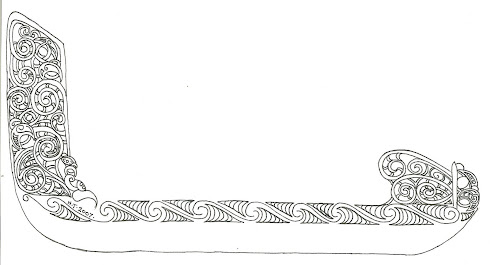WHERE DO WE STAND? http://bit.ly/15G89q
This is a such a good article. It ties in very well with Jody's comment (in the last article) and supports the "It all depends on your educational philosophy." stance.
Gary Stager suggests that it is the combination of a "vision deficit, meager goals and technological ignorance that limits the educational potential of technology". He asks us to place ourselves behind three points of a triangle with the points being manned by Papert, Snyder and Bork.
Snyder viewed the computer for the teacher. He developed his one computer classroom software and stands at the point where the teacher is the performer and the computer the prop.
Papert viewed the computer for the learner. His influence led to the development of Logo, an advocate of the laptop, believing the computer allowed learners to construct knowledge in ways and domains otherwise impossible. Hmmm, how many teachers are using these tools in this way today?
Bork viewed the computer for the system. He believed that computers assist in learning programmes where the computer can assess the learning need and then develop the programme to fit. Bork viewed most current uses of computers in learning as inadequate, often driven by technology issues rather than learning issues. Hmm, I wonder what he would recognise in today's classrooms?
Stager asks us to define what we see as the role of the computer.
1) If the computer is to deliver content then little teacher pd along these lines is needed. The impact will be negligible.
2) If the goal is to have the computer publish, prepare graphs, present content videos etc then the desired pd would be seen as teaching the skills of computer use.
3) If the goal is to have learners create, construct and collaborate then the desired teacher pd will focus on inquiry, thinking, learning and constructivism rather than simply computer skills.
3) I guess the question then needs to be asked: What do you want your classroom computers to do? The answers will then shed further light.
These answers can then be used to govern the funding investment for the classroom too.
Goal 2 above requires a cheap wordprocessor
Goal 3 requires the flexibility and creativity Jody speaks of. It definitely means online access to blogs etc as Tricia describes in her comment.
We then move on to ask - How many of our classrooms are over or under spec-ed? We need to ask - What, as a classroom teacher, am I striving to do with the computer? What does my educational philosophy encompass? Am I wanting to sustain our traditional teaching practice or transform learning?
These answers will determine the level of learning for all those who are part of that learning environment. Now that is some accountability!!

No comments:
Post a Comment